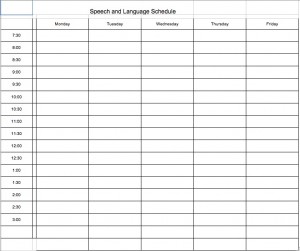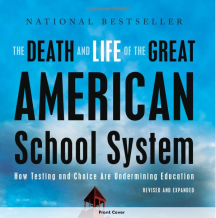Your Middle Schooler
Back in 2007, I launched my first Blog called “Your Middle Schooler: A Unique Age.” It seemed to be a nitche that hardly anyone covered. My initial post read as follows
For the past 12+ years I have worked as a Middle School Speech Language Pathologist. At the same time my own three children swam through the sea of middle school. I guess on some level that makes me a middle school expert. I am not sure about that but I have observed middle school intensively worked with both regular and special education teachers, dealt with administration, observed curriculum development (and lack of it), proctered state level examinations, been involved with displinary issues and watched hormones go crazy. When it comes to middle school I can honestly say, “been there done that.”
When you research Early Childhood development information is overwhelming, everyone has an opinion and free information is available in every toy store and doctors office. However, look for information/advice on anything related to the middle school aged child and your results is limited.
I’ve now had 17 years of wonderful middle school experiences in a variety of different communities. I know that the Middle School years are just as unique and developmentally important as the preschool years. If certain skills are not acquired during the Middle School years, higher level language development and learning will be effected. I hope to continue to provide some a lot of information about language development during the ages of 11-14 and practical suggestions on how to interact with the middle schooler in your life. I welcome any questions, concerns or comments.
Teresa
January 2012
Some of the initial material on this page might be recycled from the original Your Middle Schooler: A Unique Age. Sorry about that, but a review of good ideas never hurts.
Survey Says……..(with comments)
Thank you to the Speech Language Pathologists who participated in this speech and language assessment survey. I received responses from 9 people. Granted that isn’t a large number but I’ve read scholarly papers written with less data. I’m using the acronyms in this report since we all know what they are:). Sorry about the comments but I couldn’t help myself. It is my survey so I can do that. Please feel free to share your comments and questions.
What is your standard test battery?
The CELF-4 was the overwhelming test of choice for most therapists. The CASL and the OWLS were most frequently mentioned as second choices. For vocabulary testing most preferred the PPVT/EVT combo to the ROWPVT/EOWPVT. Then there is the good old Goldman Fristoe. What else could you use for articulation? It’s quick, it’s familiar. It’s old but really articulation is the one thing that hasn’t changed.
The tests mentioned for assessing higher order language included the TLC and the TAPS-cohesion subtests. The TOLD and PLS were mentioned for younger students.
What supplementary testing do you use for more involved children or for specific information?
- TOPS
- Parts of the CASL
- CTOPP
- LPT
- TOPL
- Social Language Development Test
- Listening Comprehension
- SSI
- SPELT
- Brigance
I can say that I am familiar with almost all the supplementary testing mentioned on the survey and use several. I prefer the test of problem solving to the TOPL because of the breakdown into skill areas. However, I’ve only read the TOPL not given it. I have the CASL available but just can’t bring myself to take the time to learn something new. I usually fight with the reading specialists on who will give the CTOPP. If you’re smart you’ll let them win. I purchased the Listening Comprehension Test but have yet to use it. I recently viewed a old and copied version of the SSI. Didn’t use it but did use a similar process to gather data. I actually found a great stuttering resource on the State of Tennessee site http://www.state.tn.us/education/speced/doc/71309SLIfluency.pdf Never heard of the The Structured Photographic Expressive Language Test (SPELT) but it sounds interesting and quick to give.
No one mentioned using Test of Written Language, but I read it in reports all the time. Next survey will include that as a question. I personally don’t work with kids enough hours a week to make an impact with their written language, too much follow up is needed to teach the editing process correctly. Plus I feel you have to be able to organize your language orally before there is going to be any significant improvement with writing. Just and opinion.
What drives your test choices?
Most respondents felt that their experience was the main factor when choosing tests to give. A small percentage of the respondents also felt that test availablity, time, administration and curriculum also drove their choices.
Does your school provide up to date testing materials?
Over half of the respondents said that their school does not provide up to date materials. We all know this is a big mistake on the school systems part. I know from personal experience that some school administrators see the importance of this and some don’t. Your testing could be judged invalid if you don’t have up to date or the right materials. Parents are smart these days and don’t hesitate to request an outside evaluation if they don’t feel the assessment at schools is an appropriate one.
Does your school copy protocol sheets?
Approximately 3/4 of the respondents said that sometimes they have to copy protocols and 1/4 said they always have to copy. We all know it happens and it is understandable that you might run out once in awhile. I’ve worked in a few systems where copying was the norm rather than the exception. I don’t know the law but I am assuming copying protocols must violate some copyright law. However, I also know that the protocols I use go into a personal file when testing is over rather than the students file at school.
The other problem with copying is that it makes testing more difficult and time consuming. Often the correct responses are color coded to make life easier. I won’t give up that luxury anymore. During an interview I asked about testing material and protocols. The blatantly told me they copy all their protocols. I blatantly told them (but nicely) that I wouldn’t use copied protocols. We’ll I didn’t want the job anyway.
Do you feel your given enough time to give and produce comprehensive and detailed evaluations?
Not surprisingly the overwhelming response here was a big NO. People not only end up with no writing time, many respondents said that schools also make it challenging to find time to do the actual testing.
How long do you spend testing a student?
Granted this greatly depends on age and specific needs. Respondents specified anywhere from 2-4 sessions ranging from 30-60 minutes a session.
How long do your write ups take?
Write ups take anywhere from 1-6 hours. I should have added a clarifying question on survey. How long is your report? I know my evaluations are usually 6-8 pages in length but much of that is the standard template. One respondent mentioned a short evaluation sheet that they fill out. Length doesn’t necessarily mean quality so I would like to see a shorter form. Maybe even consider using it.
It is clear that expectations for write ups must vary from school to school. I would bet vary from type of community to type of community is more like it. Who your writing for and how much written analysis you have to do shouldn’t but might dictate how thorough you are. I try very hard to do the same for everyone.
Do you have testing time and writing time in your schedule or do you cancel students to get testing done?
Almost 3/4 of the respondents said they had to cancel students to get testing done. Glad to hear I’m not the only one who has had to do that over the years. It’s not the rule but it happens more often than one might think. I hate it and feel extremely guilty because a student had to miss out. Rule of thumb always let the administration know that you have/had to cancel students to get testing done to meet deadline….in writing. they need to know the situation and they need to take responsibility for it.
How many evaluations do you do in a year?
The average seems to be around 30 with a range of 15-40. I know this number can be so random based on caseload size, three year re-evaluation schedules, teacher referrals and parent requests. One year you may have 30 to do and the next year 15. If you have a caseload of 60+ you are doing a lot more. This year I am doing just testing at one of my schools which means I will easily clear, probably 40 evaluations this year.
Do you feel confident and competent when testing and analyzing data?
Almost 3/4 of the respondents said they felt confident with their assessment skills. The other 1/4 said they feel confident most of the time. That’s actually not a bad thing because I feel that leaves you more open minded and willing to learn from others.
Does your testing usually line up with the academic and psychological testing?
Almost 100% of the respondents said yes. I love it when that happens. The team looks so professional.
Feelings about testing
Most therapists preferred to do their own testing because it helps them analyze skills, write goals and plan therapy. Only about 1/8 of the respondents secretly wished that students went out for testing. If I had to guess those feelings are probably related to the report write up rather than doing the actual testing. Only one respondent said they did not like testing. Personally I’d rather write up a evaluation report than a progress report any day.
The report itself
Over 3/4 of the therapists reported using a template or series of templates to make report writing easier. Almost all reported that their reports provided descriptions of the test and what they measure.
The procedure and expectations for making recommendations varied greatly. Some make general recommendations in their report and specific ones at the meeting. Some are required to make recommendations and were cited when they didn’t. I am working in a couple of different systems this year and find that different schools do want it done differently. It guess just depends on who is interpreting the rules and laws. I’d love to find out more about this.
Do Speech Language Pathologists in your district meet on a regular basis and consult?
Most of the respondents stated that they do get together with other therapists in their district. However, not always on a regular basis and with very few relevant common goals in mind. I know that is often administration driven and they tell you what they want you to work on.
Almost all respondents said that they have other therapists in their district that they could consult with. One respondent mentioned approximate 30 SLPs in her district and they felt this was their greatest strength. I would love to know if systems that big have any more power around appropriate caseload/workload, more time for paperwork duties (because of the large numbers or workload) and other issues that only concern SLP’s.
Do you feel teachers value the information you give them and use it in their programming?
Therapists were split about 50/50 on this. Some teachers use the information we provide, some just want the kids identified and one mentioned rarely seeing a teacher take a note during team meetings. I’ve worked in school systems where the teachers present then leave while the rest of us discuss the meat and potatoes of the evaluations and programming. I think they have it wrong. Teachers need to hear what we have to say and learn from us like we learn from them. I think it comes down to our identity in the schools system and few understanding our knowledge and expertise.
Conclusions
Everyone uses a similar battery of tests. The time factor is still an enigma to me. Some take a lot of time to complete testing and some don’t or can’t. I think it is hard to thoroughly judge this since the end products cannot be compared. Perhaps that is a study for another time, “report write ups.” I would like to know if I could do things better and quicker.
Seems like we’re all almost on the same page and we face the same challenges. There is never enough time in our day to complete even the most critical work. Schools don’t seem to understand that when our work is lacking because of time constraints the whole program looks sloppy and unprofessional. I’ve sat in very professional meetings and meetings that were run very inefficiently. There is a difference and some parents do know. I would bet that systems who are constantly battling with parents and/or sending kids out for evaluations, are systems where everything is done on the fly.
This was a fun survey to do and it raised all kinds of questions in my mind. Hopefully I will get to follow up on this in the very near future.
When does a Middle School Child need a Speech and Language Evaluation-reprint
Hi Everyone.
I have to apologize for being so lax about posting. I had the grandest plans for this month, writing about the speech and language assessment process. Well to make excuses, I can tell you that work has exploded. I work part time for a school system doing evaluations and they’ve decided to move up their time line on all of the evaluations. I actually think it’s a great idea but it shoves more work into my limited time. And lets not forget those pesky report write up that mostly take place at home. I also picked up another wonderful part time job at a vocational high school which will be a new experience for me. They too have me testing to meet deadlines.
Since I love evaluating I don’t mind being busy but that leaves little time for other ventures. Today I’m going to recycle a post from last January. It has an evaluation theme so it fits my plan. When does a Middle School Child need a Speech and Language Evaluation
It’s still not too late to participate in my survey on speech and language assessment. Right now I am putting together a report on the data gathered and I can always include more. Assessment Survey
Hope everyone enjoys their weekend. Around here it’s the calm before the storm and we will be securing lawn chairs this afternoon.
Teresa
Assessing Children Adopted from Abroad
I came across this article on ASHAsphere and wanted to share. The article Relationship and Communication Development in Children Adopted From Abroad by Deborah HWA-Froelich focuses on the uniqued differences in overall language development in children who are adopted from other countries.
I’ve worked with children who have come from other countries who speak both languages in the home and those that acquired english early on after listening and possibly speaking (or beginning to speak) in another language. As Ms. Froelich points out, the foreign adopted children experience a disruption in language development. I know from experienced that these children, when brought to my attention, are clearly more language disabled than the typical ESL/ELL child.
ESL/ELL children have their own set of issues. I see a lot of splinter skills in their vocabulary and comprehension especially if the second language was introduced early, before their native language was firmly developed. However, most typical ESL/ELL students improve and compensate without intensive services. ESL/ELL students usually demonstrate typical pragmatic skill development and interact well in their environment.
We all know that children who are exposed to some type of neglect and abuse are going to have difficulty developing in some if not many ways. This is an added layer, to the development of a child from a foreign adoption that must be considered as part of their profile.
School’s need to be cautious and thorough when assessing the needs of a child from a foreign adoption. Teams will almost always initially assume it is ELL/ESL issue without a complete evaluation. When this happens precious months or years are wasted. I believe the two points made by Ms Froelich, probable abuse/neglect with foreign adopted children (or at least the lack of nurturing at at early age) and the complete disruption in language development are two very valid reasons to conduct a complete Core evaluation on a struggling student with history of foreign adoption.
English is more than likely the dominate language at that point so evaluations should be conducted in English. Look at the child as a language disabled student when planning what test measures to use. If the students are very young when initially tested do not assume that language/learning development will progress as naturally as native speakers. Overall development of foreign adopted children needs to be monitored closely throughout the school years. We know that children who have difficulty acquiring language as young children often experience difficulty down the road with development of higher order language.
When you assess these students do not be surprised at if you see atypical test results. Scores will not fall into the typical patterns you expect, scores may be quite low, scattered and errors will appear throughout many areas of language. Do your best to interrupt the scores and develop a plan. Keep in mind that no matter how enriching their environment is now, these children have missed out and do not have the experiences to draw from to aid consistent development.
Evaluations are Key to Improving Special Education Programs
Many years ago I started a new job in s school district that was rumored to have some problems in their special education department. I was able to confirm the rumors almost immediately. While going through the caseload files I noticed that there were a high number of students who had gone out for their speech and language evaluation. Comparing dates I noticed that the outside speech and language evaluations were either part of the initial request or requested after a speech and language was completed through the school.
Now we have all had this happen. A parent or the team isn’t happy with our findings. This happens when we find problem and when we actually rule out problems. We’re never going to make everyone happy 100% of the time. However, something was different with the pattern I was seeing. There were just too many outside evaluations.
Reading the evaluations, it was easy to see why this happened. The evaluations done by the school speech language pathologist were void or any narrative or analysis. Scores were reported, ranges were given and summaries were sparse. Most of the school speech and language evaluations were 2 pages at best. The quality was poor and no supplemental testing was ever given. I wondered if the therapist was really that bad, never learned the right way to evaluate or just didn’t have time to do the job properly. I wondered how these reports were presented to the parents. Was the therapist able to go into more specific detail in the meetings? The IEP’s didn’t reflect this so I doubted that parents or teachers were given any more information. Basically the evaluations I read raised more questions than they answered.
Parents talk, even in large districts. It only takes one parent or team member to say something negative about a report for that opinion to spread. Pair that with a general lack of confidence in the school’s special education program and you can see how easily a situation like this may occurred. (I’ve seen poor evaluations from clinics and hospitals but somehow it doesn’t seem to sully their reputation as much.)
First Step
With the help of a dedicated staff and a strong team leader this particular school was able to turn around the perceptions of most of the parents. The first step in this process was to improve testing in all areas.
- The school administration supported more testing and meeting time, they were at the point where they realized it was cost effective.
- The team took the time to look over many report styles and picked the best formats and pieces from each one to help develop testing templates.
- Our program manager developed a heading for our written evaluations which immediately gave a more professional and coordinated look to our testing.
- While testing students we collaborated with the other team members. The school psychologist often asked me to dig a little deeper in some areas. I always went to both the regular and the special education teachers to ask them what their biggest concerns were and if there was anything specific they wanted me to try and rule out.
Because of our efforts, we not only looked more professional and coordinated, we were more professional and coordinated. Parents were no longer confused when they left the meeting because everyone had their own different opinions. We did such a good job of coordinating our efforts that we rarely missed anything and our testing almost always dovetailed.
Meetings
The meetings are another key factor to completing good evaluations. When reviewing testing, marathon meetings are a must. It takes a long time to review 3 or more evaluations thoroughly and to develop a good IEP. When schools take the time to answer parent concerns, parents view the schools as caring and personal. Sometimes we actually split the meetings into two if the reports were long and involved, developing the IEP a day or two later (if we had the time legally). This school system was dedicated to improving their evaluation process and hired substitutes so the teachers could stay for most if not all of the meeting. Nothing tells a parent you care less about their kid than leaving a meeting in the middle of it.
With some coordinated team effort and administrative support we were able to turn this particular situation around, keep testing in house and keep costs down. Our testing and our reports became more thorough and looked more professional than some of the previous outside evaluations. In some cases our testing was even better because we often knew the student prior to testing, we were often able to include formal and informal observation, we were able to gather first hand information from parents and teachers to direct testing and we were able to see the kids in a familiar setting over a longer period of time.
Results
Because we collaborated informally ahead of time
- Our recommendations, accommodations and service delivery were truly team decisions.
- We were able to look at all factors such as student need, teacher concern’s, parent’s concerns, other school demands, who would be responsible for accommodations and how to fit the needed services into the students day while developing the IEP.
- Our IEP’s were some of the best and most individual specific I had ever seen.
The outside evaluations often contained recommendations and accommodations. However, they were often generic or grandiose. Suggested service delivery from outside evaluations did not take the schedule, the child’s overall needs or other educational demands into consideration.
I was very proud of the work we did in that school district over the three year period that this particular team worked together. I learned a lot. Watching parents perceptions change and confidence in the school grow was especially rewarding. We knew we had a lot to do with that. Our team leader problem solved and we implemented simple and very common sense changes that made us look good. Best of all the students ended up with an effective IEP. With teachers involved in the process they had an easier time following through on classroom accommodations and modifications. The teachers also knew they could come to us for support.
Did we keep 100% of our testing in house? No of course not but our percentage of in house evaluations shifted significantly with very few evaluations in any discipline completed outside of school. With simple and professional changes we were able to improve the way we did CORE evaluations without a mandate or law. Our team leader took the talents and strengths of smart, caring professionals and gave us the time and tools to improve (not change) our evaluation process. Bottom line we were effective, we looked good and felt more professional.
The School Speech Therapist Book Review
The Death and Life of the Great American School System
Book Review
I’m almost finished listening to the book The Death and Life of the Great American School System by Diane Ravitch. All I can say is no wonder the United States finds it’s self in a quandary about what to do to improve all schools. Ms. Ravitch is an Educational Historian who speaks from experience, significant research and some first hand observation. Her book goes back several decades and chronicles the many many attempts to improve schools. It is amazing how many methods have been tried and I might add failed. Reformers, educators (those involved in school reform), administrators and even statisticians have made education so complicated and convoluted over the years it’s no wonder that most reform attempts fail.
While reading this book I get the sense that most reformers have no understanding of children, how they learn, how challenging other aspects of their lives can be or even human nature. Most reform measures seem very myopic in their goals and never look down the road as to the child’s ability to apply learning to life. Reform ideas seem to appear willy nilly without research, studies, development or revision. If a reform idea doesn’t work after awhile one of two things seem to happen, they move on to another reform or the players move on and the original reform fades away. I’ve actually worked in districts who have jumped from reform idea to reform idea. What I noticed in these schools are students with glaring splinter skills and a general lack of maturity in their academic abilities and confidence.
What is most interesting about this book is that Ms. Ravitch was originally a supporter of reform until she realized most of reforms didn’t worked, reform promoted cheating, the goals set were impossible and that state mandated testing produced little reliable data. Ms. Ravitch, also points out that much of the blame, when reforms fail to produce improved test scores falls on to the teachers and principals. She sites several reasons why the sole blame should not fall on teachers and principals alone. My impression is that school reformers claim to fame is to place the blame on teachers and unions when their ideas don’t work. I found it very curious that even most recent reform ideas don’t seem to mention much about developing a good strong curriculum for teachers to work from. I would think that would be the biggest part of the whole equation.
This is a long complicated book and much of the time the information just blended together. This isn’t to fault Ms. Ravitch’s writing, it just emphasizes how disorganized school reform is. Her book makes hundreds of valid points around the mistakes made in reforming education. It is a fabulous book for discussion points. The Death and Life of the American School System details the history of education across the nation not just what has happened in your school district or state. I think most readers will be surprised at some of the absurd situations and ideas that have developed over the years in education. There also appears to be a general lack of ownership and clear documentation when reform ideas fail.
Teacher’s are almost powerless in fighting school reform and their opinions and experience is rarely (if ever) solicited. For years, I’ve wondered why school administrators, superintendents and even school boards don’t question reforms being forced on school systems. Especially systems that have high functioning schools. Struggling schools tend to go through these reform programs quickly, dumping them when they can’t report an immediate success rather than tweaking them to fit their needs. Frequently, I see and hear about school districts spinning what they know are going to be ineffective approaches, to parents and the media, always touting that they’re implementing the next great thing in education.
Everyone wants to see the data. Ms. Ravitch points out that data doesn’t show everything and that often the wrong data is collected and compared. I know that there have been programs introduced in schools that have been widely used for years. I’ve asked the consultants of these programs to show me the data and they usually can’t. I believe it’s because there isn’t any. Yet when presenting to a group, consultants will always say, “The data shows….” I learned a long time ago, from one of my grad school professors in fact, to question educational data.
So pick up this book read, listen and highlight. Learning the history of reform, lack of organization and lack of success made me realize that I am not the only one who is concerned that education has taken a wrong turn. This book should be required reading for every school committee member, administrator, superintendent, mayor, town counsel, finance committees and anyone else who has responsibility for planning children’s education.
Numbers vs. Need
Kudos to anyone who has a working schedule in place. Now the question is can your schedule be implemented with quality and consistency. Talking with colleagues in several states, I noted for some, caseload management is a huge issue. Almost all full time therapists have big numbers. Many report 60 to 90 students on a caseload. Some of these therapists have speech language assistants and some don’t. A good assistant can be somewhat helpful but the ultimate responsibility for the student’s programming falls on the therapists shoulders.
Over the years I’ve been lucky to work on occasion with principals, team leaders and even special education directors who for the most part were aware of caseload numbers and sometimes understood need differences. I’ve learned over the years to advocate for myself in terms of the time needed to adequately service my caseload. Sometimes the administration listened and sometimes there was no money to listen.
When assessing the needs of any special needs caseload wether it be the special education teachers caseload, the speech therapists caseload, the school psychologist caseload, the team facilitator’s caseload and even classroom placement, the students needs not just the number of students needs to be looked at. As speech therapists, we know that 60 students with developmental articulation needs is a lot easier to manage than 60 language learning disabled kids. Our caseloads are never that straight forward either. Within a group of 60 students, a typical speech language pathologist will service a variety of disabilities ranging from simple articulation errors, to language learning disabled, to low cognitive, to specific disabilities such as Aspergers and autism, to physical disabilities effecting communication and everything in between.
If a therapist has 60 students on a caseload they might miss 60-180 hours of therapy just attending annual meetings. Thats 10-20 days of therapy and at least 6 meetings a month. We can write IEP’s that involve articulation and development language delay in our sleep but children who have more complex needs, their IEP’s require more time and thought. At least a fourth if not more of the students on the caseload will require a 3 year re-evaluation. Comprehensive speech and language evaluations take anywhere from 6-12 hours to complete dependent on the students needs and if you include write up time. That’s another 90 hours or 15 days of therapy. it is almost impossible to build in time for meetings and testing when caseload numbers are big. My point is the larger the caseload numbers the more therapy will be cancelled due to other tasks because most of those tasks have to meet mandated deadlines. If the student is a more involved student all those housekeeping tasks take more time too.
Administrators, please look at caseload need when determining how many therapists you need to service your school or district. Ask your therapists what their caseload needs are not just how many students they have. Look at the schedule and see if it is even physically possible to schedule students and allow for adequate meeting and paperwork time. If a school schedule does not accommodate special education students and their needs it is your responsibility to initiate change. Speech therapists often need more paperwork time because almost every student we see has unique and significant needs. Canceling therapy is unacceptable as a solution.
Parents, at your team meeting, ask outright how many students there are on the therapists caseload. Parents don’t hesitate to question class size and caseload size is no different. If you don’t like hearing that the therapist has to service over 60 students in a week. question them as to how the therapist will manage to give your child what they need.
Therapists, advocate for yourself and speak up. If your caseload so challenging, numbers are too high and need is too great, that the children are not getting what they need and you have to cancel therapy on a regular basis, your caseload is too difficult to manage. You are not a failure if you have impossible parameters to work with. Make a list of the issues and present it to your principal, special education director and team facilitator. If you don’t educate them on caseload needs they will never understand. Even if it doesn’t help your immediate situation it may change they way they look at things in the future. Point out that an assistant is not always the answer since you have to supervise them and most are not qualified to work with more involved students.
Not all caseloads are created equal. Therapists and teachers know this. Caseload management is an issue that is talked about a lot among therapists and teachers. We know the problems but nothing will be done about it until we are able to educate our administrators on need vs. numbers.
Carly’s Voice: Breaking Through Autism
A cousin of mine who happens to have a grandson with autism mentioned this segment that aired on “The Doctors” today. I found it extremely interesting from a speech and language perspective . Also interesting from a life perspective. Take the time to watch the videos, very enlightening. I sometimes put down technology when it comes to developing language but in this case technology gave Carly Fleischmann a way to have a voice in the world.
Carly’s Fleischmann on the Doctors
I’m planning to read (listen) to her and her Dad’s book soon.
Having trouble getting your schedule to work?
It’s inevitable, the school speech language pathologist will have difficulty putting together a workable schedule. Some years it’s just more difficulty than others. We all know the obstacles we face (15 scheduling obstacles). I have a simple tip for those of you who feel completely overwhelmed. Ask for help.
One year I was working in 2 buildings and wasn’t very familiar with the overall school culture. We were packing 20 kids into 19.5 hours (I realize that is a luxury to some of you). The schedules were extremely different but most core classes were taught in the morning. It didn’t take me long to realize I didn’t want to waste extreme amounts of time and energy needed to create, recreate and then revamp a schedule that probably couldn’t work. In the mean time students were losing precious services.
I asked the program mangers in both buildings to sit down with me and help work out a schedule. I explained the issues I was dealing with and that I was not able to solve the problem on my own. When they arrived I was prepared with copies of schedules and templates in case they showed up empty handed.
We sat down for what they thought was going to be about a half hour and it took almost two hours to work then rework my schedule. In the end I had a schedule I could implement the next morning. One set of eyes wasn’t enough and I couldn’t identify all the conflicts not knowing the schools various routines and culture.
Did I feel like I couldn’t do my job on my own? No I also realized I was given almost impossible and unknown parameters to work with. Did it speed the process along? Sure did. Did it save grief and strife? Yes again. Did my program managers gain insight and understanding of the challenges I was facing? Not sure about that but I like to think I at least planted a seed.
If you feel like you are facing significant difficulty putting a schedule together either because of your numbers, severity of caseload or too many schedules to combine, ask for and if necessary insist on help. It’s the right thing to do. An extra set of eyes can never hurt. Your stress level will thank you.
Scheduling: School Speech Therapists Are the Experts
 The beginning of the school year is always filled with excitement, anticipation and hope. It is rather nice to have a job the starts “fresh” every year. Schools look polished, organized and clutter free. The kids look happy, enthusiastic and clean. However, for therapists this feeling of euphoria is always short lived. First we see our numbers and our caseload. Usually we can deal with that by slowly chanting “it is what it is, it is what it is”. We start thinking of therapy ideas the minute we know who are students are. That’s truly one of the fun parts of the job.
The beginning of the school year is always filled with excitement, anticipation and hope. It is rather nice to have a job the starts “fresh” every year. Schools look polished, organized and clutter free. The kids look happy, enthusiastic and clean. However, for therapists this feeling of euphoria is always short lived. First we see our numbers and our caseload. Usually we can deal with that by slowly chanting “it is what it is, it is what it is”. We start thinking of therapy ideas the minute we know who are students are. That’s truly one of the fun parts of the job.
Then comes the next step, da-da-da-dum………….working out a schedule. School Speech Language Pathologists are good at many things but we are experts in scheduling. There is no graduate course that prepares us for this task. They can’t teach a course on this because every school and every year the process is different. In fact, if they showed a scheduling process to speech language pathology graduate students most would choose to work somewhere other than a school. Scheduling for the Speech Language Pathologist is a self taught skill. It is also our most challenging task and the task that usually takes the longest.
A pallor actually falls over the room when we sit down to “work out” our schedule. Unless a therapist is extremely computer savvy, we sit with blank templates, a box of sharpened pencils and a large eraser. Depending on the school, we might be holding anywhere from 3-8 different schedules in our hands. We have to cross reference and cross check over and over again, shuffling 8×11 sheets of paper like they were playing cards. With any luck at all, the school has used colored paper to distinguish the different schedules but that’s a luxury afforded to only the most conscientious administrators (or their secretaries). Later on we acquire a clipboard and buzz around the school like bees going from flower to flower double checking everything, flipping through those schedules with speed and hopefully accuracy, making our first round of changes as we find conflicts.
How have School Speech Therapists developed such expertise in scheduling? Here are 15 obstacles the School Speech Therapists faces when scheduling. We work very stealth and few people realize or care about the challenges we face.
- We have to schedule anywhere from 30-80 students. First you have to figure out their needs, which students could possibly work together, which students can’t.
- Schools rarely keep a consistent or even similar schedule year after year so you have to get familiar with a new schedule.
- The school schedule itself may be a five, six or seven day rotation and you have an educational plan that says you have to see the student twice a week.
- The school schedule may “waterfall” meaning that the actually schedule will be different almost every day or every week. If you have to work in a “block schedule” format you might as well retire early.
- The administration when making the schedule gave no consideration to children who need to go out for services regular or special.
- Students in the same grade may not even be on the same schedule.
- If we have a place to work and service kids, it might only be available at certain times.
- We also may have to create a schedule for an assistant and find them a place to work.
- Team meetings and Special Education staff meetings are scheduled at the most inopportune times or worse yet randomly. You know students will miss services often if you put them in a particular slot but you have no choice.
- We often work in more than one building and have to accommodate each schedule.
- It’s actually worse when our buildings are on the same schedule.
- We only have certain days available in a building.
- We have to try and preserve some paperwork/prep time. (hahahahaha).
- Unless we are really pushy, we are usually the last ones to schedule. Not because we’re not on the ball or know what we’re doing, it’s because we’re the last ones considered.
- Then we have to go around to teachers and double check the times we selected. We have to play nice it sets the tone for the year. It’s almost like asking permission to see students we are legally bound to see.
Anyone who can coordinate this many factors and come up with a finish product deserves the title of “Expert”. Speech Language Pathologists would proudly accept the title of “Scheduling Expert.” However, there is little to no thanks for this skill. We accept the fact that it is a skill with only intrinsic value, we stay sane. Perhaps we should create a special certification for this skill. We could add Scheduling Expert to our title. It could look something like this MA/SLP-ccc SchEX. Anyone with at least 10 years experience school scheduling would be grandfathered in. We could even add it to our resumes. Imagine how good that would look.
Happy scheduling and good luck. I wish you a productive year with no mid year schedule change. May your evaluations be few and new students limited to 5.
Teresa Sadowski MA/SLP-ccc SchEX
Speech Language Pathologist
Scheduling Expert (25 years experience)
“Brain Training Programs” Any Experience?
Can anyone comment on their experience using brain training programs such as Fast ForWord, Lumosity, Attengo? I have a follower considering using this type of programming with her 8th grade son who has ADHD – inattentive type and difficulty with language comprehension. They would love to hear your experience, if you thought it made a difference, if it is appropriate for older middle school students and is it worth the cost? The student doesn’t qualify for services at school but has a 504 plan and could possibly use in-school time for this kind of training. Are these types of programs effective and what type of student generally benefits the most?
Thanks










